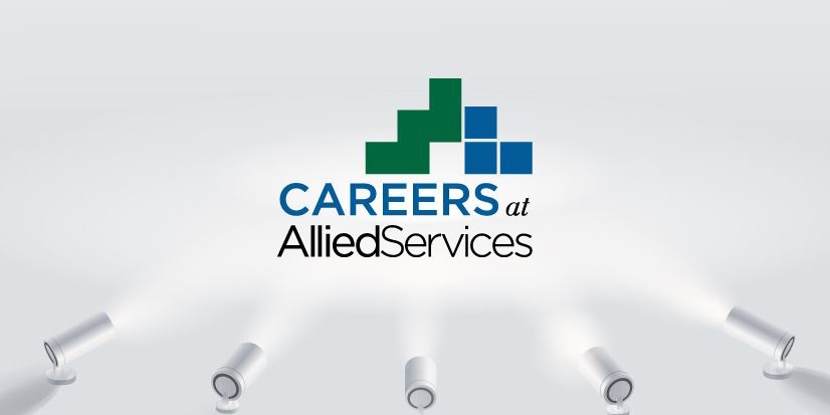Aftercare of COVID-19 Survivors Requires a Multidisciplinary Approach
- Category: News
- Posted On:
- Written By: Allied Services Integrated Health

The arrival of vaccines for COVID-19 has been cause for celebration or at least cautious optimism around the country and the globe. Yet even as this milestone is reached, the medical community is still learning about this virus and how it affects the human body in the days, weeks, and months following initial infection.
COVID-19 can cause damage to the lungs, resulting in persistent shortness of breath, coughing, and wheezing that can persist weeks after discharge. COVID-19 can also produce lasting effects on the kidneys, heart, central nervous system, and brain.
People recovering from severe COVID-19 symptoms must also deal with a variety of side effects from the treatment of the virus. Medical treatments such as intubation, use of a feeding tube, and body positioning to assist breathing often lead to severe muscle weakness, muscle or joint pain, chronic fatigue, bedsores, balance and postural disorders, trouble with breathing, speaking, and swallowing.
Additionally, patients hospitalized with severe COVID-19 symptoms are at greater risk of developing mental health impairments. Time spent in intensive care may result in delirium, anxiety, depression, trouble with thinking, judgment, memory, concentration, and insomnia.
Indeed, the use of the phrase “post-COVID long haulers,” while not a clinical term, has gained momentum as we recognize more people experiencing lingering impairment beyond the initial hospitalization phase. Although returning home after hospitalization for COVID-19 represents a battle won for the patient and the medical community, the residual effects of the disease require a response that is personalized, coordinated, and multidisciplinary. In many cases, returning home and simply resting may not be the best approach to a full recovery. Our response must take into consideration that patients are facing this barrage of physical, emotional, neurological, and cognitive challenges. Patients recovering from COVID-19 yet being discharged from a hospital would benefit from a physiatrist assessment of physical, emotional, and cognitive impairments. This approach has already been adopted by healthcare systems in major metropolitan areas. In Philadelphia, Penn Medicine has created the Post-COVID Assessment and Recovery Clinic to provide multidisciplinary assessment and resources.
At Mount Sinai Center for Post –COVID Care in New York City, patients have access to a team that includes among others primary care, pulmonary medicine, cardiology, physical and occupational therapy, neuropsychiatry, nephrology, and social work.
Physical rehabilitation, pulmonary rehabilitation, cognitive rehabilitation, and mental health support are all important tools to be utilized in the post-acute care of COVID-19. These interventions go hand-in-hand and can help to improve the quality of life and function for many patients.
As healthcare professionals, we must work together to provide post-acute care that supports the needs and goals of a growing number of people struggling to regain their health, independence, and quality of life.
Dr. Michael D. Wolk, M.D., is a partner at Northeastern Rehabilitation Associates and is Medical Director at Allied Services Rehabilitation Hospital. Dr. Wolk is certified by the American Board of Physical Medicine and Rehabilitation with a Sub-specialty in Spinal Cord Injury Medicine, and by the American Board of Independent Medical Examiners.



